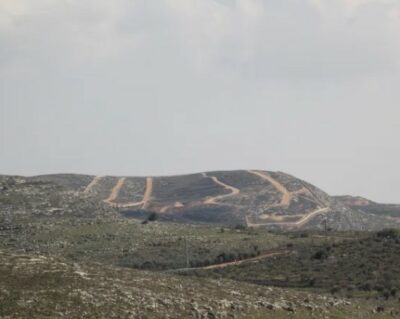The Israeli occupation authorities confiscated 170 Dunams of privately owned Palestinian lands in the Arab At-Ta’amra area, east of Bethlehem in the occupied West Bank.
The Wall & Colonization Resistance Commission stated that the soldiers delivered the confiscation orders to the Palestinians, and alleged that the lands are “state-owned”, although they are owned by the families in the area.
The Wall & Colonization Resistance Commission added that earlier this year, the army confiscated 11.000 Dunams of Palestinian lands in Bethlehem and occupied Jerusalem.
Israel frequently uses the allegation of state-owned lands in the occupied West Bank to annex more lands for its illegal colonies and the army, although, as an occupying power, the annexation of lands is illegal.
The Commission stated that Israel illegally controls 2.380 Square kilometers (%42 of the occupied West Bank, including %69 of Area C.
Israeli authorities have obstructed the Palestinian development of Area C and much of the rest of the West Bank through military orders.
These orders bar Palestinians from registering land, thwart them from building, and forbid local and district planning committees.
As a result, Palestinians are excluded from participating in the processes that steer spatial development, while Israel confiscates land for purported public services such as roads built for Jewish Israeli use.
Only 30 percent of Area C land is designated for development by Palestinians. The remaining 70 percent is classified as closed military zones that are off-limits to Palestinians unless they obtain special permits from Israeli authorities.
These stringent restrictions on Palestinians’ spatial development continue to intensify even though without Area C, a Palestinian state is inconceivable. Indeed, Area C holds valuable natural resources and a rich cultural heritage, and it represents the bulk of available areas for the spatial development of a future Palestinian state. Read More: Israel’s Stranglehold on Area C: Development as Resistance – Ahmad El-Atrash – Al-Shabaka

